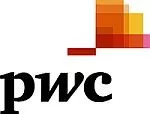This was an appeal against the judgement of the Federal High Court (FHC) which ruled that VAT was payable on satellite bandwidth as an imported service. The 3 questions for determination by the Court of Appeal (CoA) are:
Issue #1 - Whether imported satellite bandwidth was subject to VAT and whether the foreign supplier carried on business in Nigeria. FIRS had argued that the service is supplied in Nigeria and it is not listed as exempt so it is VATable.
Decision - In so far as the bandwidth capacities are supplied in Nigeria, the foreign company carried on business in Nigeria within the meaning of S10(1) of VATA. The location of the Supplier is not relevant (similar to the scenario of imported Frozen Fish where VAT is collected upon import). The judgment interpreted Carry on based on dictionary meaning as "to continue doing something" and stated that Section 54 of CAMA is not relevant because it has a different purpose and thrust.
Issue #2 - Whether the duty to remit VAT by the local recipient of service is separate and independent of the condition by the foreign supplier to charge VAT.
Decision - The duty to remit VAT by the recipient is separate from the duty of the foreign company to register and charge VAT and not a condition precedent. It is only a procedural provision and does not interfere with the substantive duty of VAT remittance. The CoA stated that the issue was whether the decision of the lower court was correct and not whether the reasons given for the decision are correct.
It also stated that the foreign supplier contracted its VAT obligation to the local recipient but in any case the recipient will still be liable even without the duty being contracted because FIRS can assess the tax under S7(2) and the recipient is required to render returns under S15 both of the VAT Act.
Issue #3 - Whether the destination principle and reverse charge were wrongly applied by the FHC given that such are not contained in the VAT Act. FIRS had argued that the destination principle is implicit in S10(2) by virtue of the phrase "... supplied in Nigeria..." while reverse charge is provided for by the phrase "... the person to whom the goods and services are supplied in Nigeria shall remit the tax ..."
Decision - The CoA ruled in favour of the FIRS saying that the "destination principle" promoted by the OECD, stipulates that goods imported from a State are exempted from VAT and are instead taxed in the destination State in which the goods are imported. And "reverse charge" in exoteric terms, is applicable in the EU whereby the buyer of goods or services assumes responsibility of paying the applicable VAT instead of the supplier. The CoA said the lower court may have been wrong in alluding to Reverse Charge but its decision that the transaction is VATable by virtue of S2, 10 and 46 of VAT Act is correct, and the Destination Principle was not stated as a reason by the FHC.
PwC's thoughts:
The bases for concluding that VAT is applicable in this case can still be contested. For instance, the judgment states that bandwidth capacity qualifies as carrying on business in Nigeria because it is supplied in and continuously utilised in Nigeria. The judgment again focused on "carrying on business" rather than "carrying on business in Nigeria" given the admission that the foreign supplier did not operate in Nigeria. The judgment seemed to draw a nexus based on the transponders in Nigeria used to convey the bandwidth signals. Also, the judgement seems to interchange "charging" and "remittance" of tax such that the obligation to remit tax is construed to include the obligation to charge the tax. The reference to EU "reverse charge" was erroneously described as a requirement "to pay" rather than "to charge" with the latter being the issue in contention.
The content of this article is intended to provide a general guide to the subject matter. Specialist advice should be sought about your specific circumstances.

